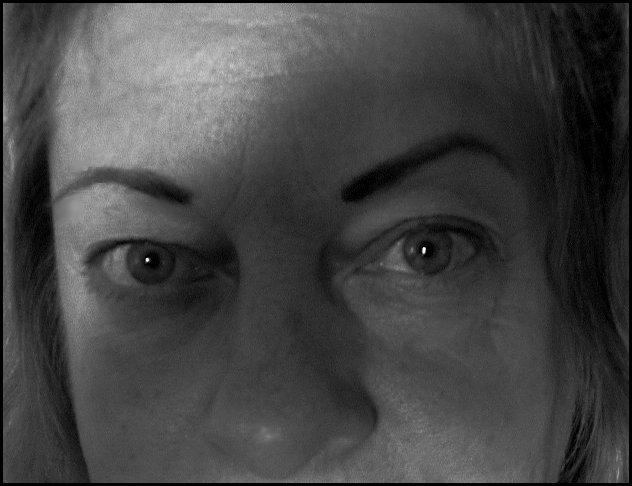An about- face by Bush and Blair
U.S. and Britain to push for Mideast peace force
UN resolution will call for ‘urgent’ end to hostilities
By Matthew Fisher
And Sheldon Alberts
CanWest News Service
Beirut -- Israeli jets and Hezbollah rockets continued to exact a deadly toll along the Lebanonese – Israel border Friday as U.S. Secretary of State Condoleezza Rice was en route to the area in the hopes of winning support for a planned United Nations Security Council resolution next week to end the fighting that has continued for almost three weeks.
Facing growing international pressure, the United States and Great Britain on Friday said they would accelerate efforts to deploy an international stabilization force to Lebanon and speed the delivery of humanitarian aid.
As part of the renewed diplomatic push, Rice will seek agreement between the leaders of Israel and Lebanon on a planned UN security Council resolution authorizing the force.
“We agree that a multinational force must be dispatched to Lebanon quickly, to augment a Lebanese army as it moves to the south of that country,” President George W. Bush said at a joint news conference with British Prime Minister Tony Blair.
A Security Council resolution, to be introduced as early as Monday, will include “a clear frame-work for cessation of hostilities on an urgent basis,” Bush said.
The joint U.S.-British initiative is being launched just days after European and Arab officials failed, during meetings in Rome, to convince the Bush administration of the need for an immediate ceasefire between Israel and Hezbollah.
Rice had said she would only head back to the region when there was a viable plan for a “sustainable” end to fighting, but Bush and Blair have faced growing restiveness from Arab allies who have become increasingly critical of the Israeli military campaign.
Blair acknowledged there is a danger that the “Arab street and people in Arab Muslim countries become more sympathetic to Hezbollah” the longer the fighting continues.
“How do we counter it? We counter it, one, by having our own strategy to bring the immediate crisis to an end, which we do.” Blair said. “We want to see tabled and agreed a UN resolution as early as possible that will allow the cessation of hostilities.”
Asked when he thought an end to violence was possible, Blair said if the Security Council resolution passes nex week ‘it can happen then”.
Hezbollah indicated Friday that it was willing for the first time to consider allowing the Lebanese army to control the country’s southern border. At the same time, it was boasting that it had fired rockets deeper into Israel than ever before.
Hezbollah’s website, which is run by a television station it owns, claimed that it had fired five Iranian-made Khaybar-1 rockets into the Israeli city of Afula, 45 kilometres south of the Lebanese border. The rockets, which carry a potent 100-kilogram warhead, landed harmlessly outside the city, Israeli police said.
In all, Hezbollah fired more than 90 rockets into Israel on Friday. Most of them landed in and near border towns and in the Galilee.
Israel responded with 180 more air strikes. Most took place just inside Lebanon although Hezbollah targets in the Bekaa Valley were also attacked.
These bombardments reportedly killed 13 in Lebanese towns and villages near the border. One of those killed was Nur Shalhov, whom Israeli media described as a senior Hezbollah officer whose particular specialty was smuggling weapons into Lebanon. Shalhov was driving in a vehicle loaded with rockets when it was hit in the Bekaa Valley by missiles fired by Israeli F-16 fighters.
A convoy of civilians displaced by the fighting was shelled by Israeli artillery as it tried to reach an isolated village to the east of the southern Lebanese port city of Tyre. A cameraman and driver from a German television network that had been traveling with the convoy were slightly injured.
Overall, the Lebanese government said that 443 people have been killed since hostilities erupted July 12 and that most of those who had died were civilians. Up to 200 more people were also reported dead, but Lebanese officials said they could not be properly counted because their corpses were still buried under houses and buildings that had been badly damaged in Israeli air raids.
Israel’s official death toll stood at 33 soldiers and 19 civilians Frid. The IDF told the Israeli media that it thinks that it has killed at least 200 Hezbollah fighters since the war began after Hezbollah seized two Israeli soldiers inside the Israel and dragged them back to Lebaonon. Hezbollah, which is regared as a terrorist organization by most western governments including Canada, has claimed the real number of its dead is 30 to 35.
Three days after an Israeli air strike killed four UN military observers in Southern Lebanon, the world body also announced Friday it would evacuate all its observers from the region.
With Maj. Paeta Derek Hess-von Kruedener of Canada among the four dead, Prime Minister Stephen Harper had questioned why the UN had kept observes in what had become a war Zone.
-- with a file from Stevne Edwards at the United Nations

No comments:
Post a Comment